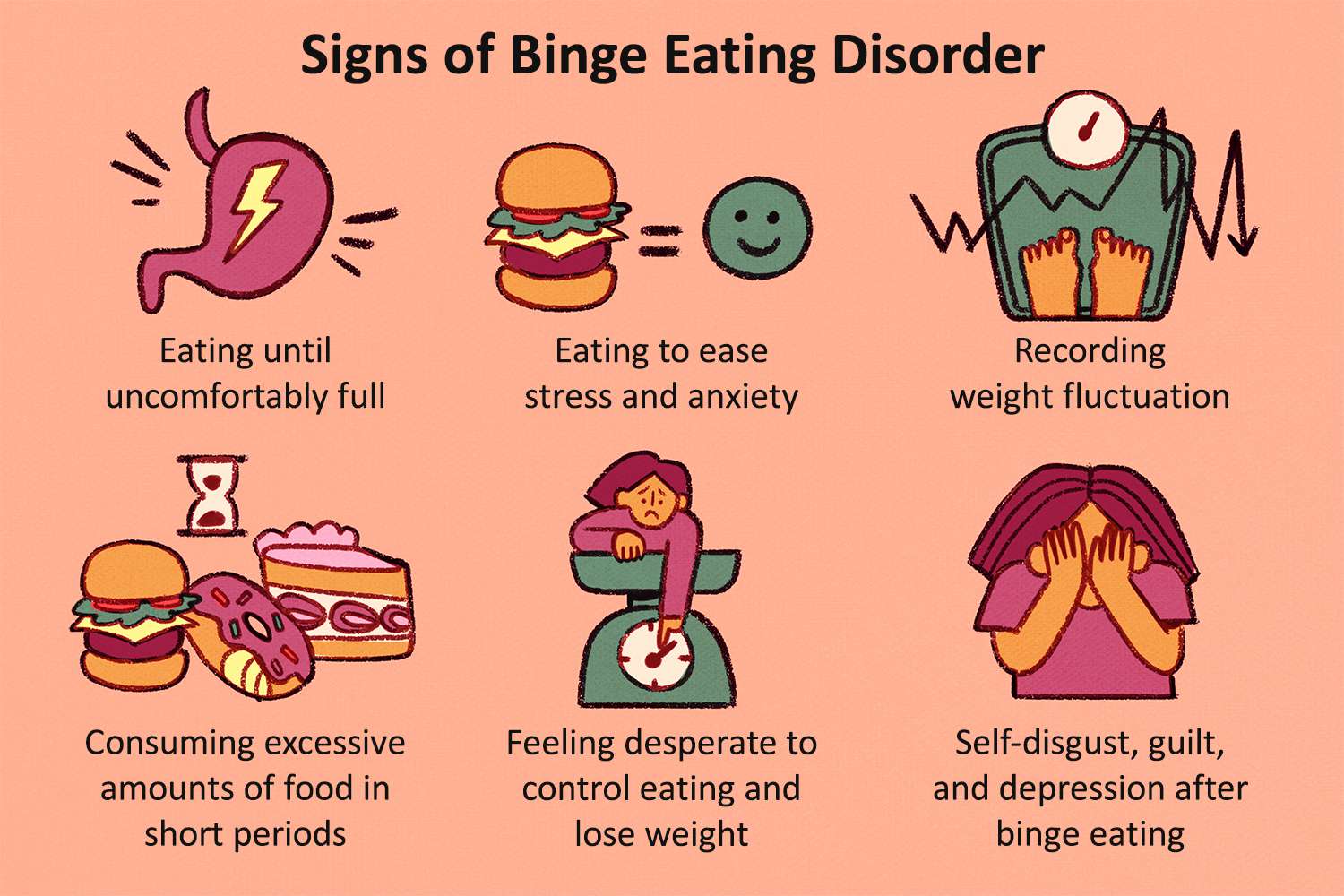- Eat a healthy diet: A balanced and healthy diet is essential for maintaining good eyesight. Nutrients such as vitamins A, C, and E, as well as minerals such as zinc and copper, are crucial for healthy eyes. Foods that are rich in these nutrients include leafy green vegetables, citrus fruits, eggs, nuts, and fish. Eating a diet rich in these foods can help prevent eye diseases such as cataracts and macular degeneration.

- Practice good eye hygiene: Practicing good eye hygiene is also important for maintaining good eyesight. This includes avoiding rubbing your eyes, which can cause damage to the cornea, and washing your hands before touching your eyes. Additionally, avoiding exposure to smoke, dust, and other irritants can help prevent eye infections and irritation.
- Get regular eye check-ups: Regular eye check-ups are important for detecting and treating eye problems early on. This is especially important if you have a family history of eye diseases such as glaucoma or macular degeneration. Your eye doctor can also provide you with recommendations for maintaining good eyesight.
- Take frequent breaks when using electronic devices: Using electronic devices such as computers and smartphones for extended periods of time can cause eye strain, which can lead to blurred vision, headaches, and other symptoms. Taking frequent breaks and practicing the 20-20-20 rule (looking away from your screen every 20 minutes and focusing on something 20 feet away for 20 seconds) can help reduce eye strain and maintain good eyesight.

- Exercise regularly: Regular exercise is not only beneficial for your overall health but also for your eyes. Exercise can help improve blood circulation to the eyes, which can help prevent eye diseases such as glaucoma. Additionally, exercises that focus on eye movements can help improve eye muscle strength and flexibility. Some examples of eye exercises include focusing on near and far objects, rolling your eyes, and blinking frequently.
Tag: how
How to control sugar with medicines
There are several types of medications used to treat diabetes, including those that lower blood sugar levels. The best medication for an individual depends on various factors, such as the type of diabetes, overall health, and other medications being taken. It is essential to consult a healthcare provider for proper evaluation and recommendation of medication.
There are many reputable pharmaceutical companies that manufacture medications for diabetes, including Novo Nordisk, Sanofi, Eli Lilly and Company, Merck & Co., AstraZeneca, and Pfizer, among others. These companies produce various medications for diabetes, such as insulin, metformin, sulfonylureas, DPP-4 inhibitors, GLP-1 receptor agonists, SGLT2 inhibitors, and more.
high blood sugar levels can often be controlled with medication. There are several types of medications available for the management of high blood sugar levels, including insulin, oral medications like metformin, sulfonylureas, DPP-4 inhibitors, GLP-1 receptor agonists, SGLT2 inhibitors, and others.
However, it is important to note that medication alone is not always sufficient to manage high blood sugar levels effectively. Lifestyle changes, such as a healthy diet, regular exercise, and weight management, are also essential for controlling blood sugar levels.
It is important to note that while medication can be helpful in managing diabetes, it should always be used in conjunction with healthy lifestyle choices, such as regular exercise and a balanced diet. Additionally, medication should only be taken as prescribed by a healthcare provider, and any questions or concerns about medication should be discussed with them.
Depersonalization / De Realization Disorder
Depersonalization/Derealization disorder is a dissociative disorder that affects an individual’s sense of self and surroundings. People with this disorder feel disconnected or detached from their own thoughts, feelings, and sensations, as well as from the world around them. They may describe feeling as if they are watching themselves from outside their own bodies, or as if the world around them is unreal, dreamlike, or distorted.
Depersonalization/derealization disorder can be caused by severe stress, trauma, or abuse, as well as by certain medical conditions, drug use, or neurological disorders. It can also be a symptom of other mental health conditions, such as anxiety or depression.
The symptoms of depersonalization/derealization disorder can be distressing and disruptive to an individual’s daily life. They can interfere with relationships, work, and other daily activities. Treatment for this disorder typically involves therapy to help the individual manage the symptoms and learn coping strategies. Medication may also be prescribed to address any underlying anxiety or depression.
Overall, depersonalization/derealization disorder can be a challenging and difficult condition to live with.
Which disease is most common in Pakistan?
Malaria is one of the most common diseases in Pakistan, particularly in rural areas. It is a parasitic infection transmitted by the Anopheles mosquito, and symptoms include fever, chills, headache, and muscle pain. Malaria is especially prevalent in the northern regions of Pakistan, which have a humid climate and abundant water sources that provide breeding grounds for mosquitoes. The disease can have serious consequences, particularly for children and pregnant women, and can lead to anemia, respiratory problems, and even death. Despite efforts to control malaria through mosquito control and the distribution of insecticide-treated bed nets, the disease remains a significant public health issue in Pakistan, with an estimated 5 million cases reported each year.
There are other several diseases that are common in Pakistan, but some of the most prevalent include:
- Dengue Fever: This mosquito-borne viral disease is common in many parts of Pakistan, particularly during the monsoon season.
- Tuberculosis: Pakistan has one of the highest rates of tuberculosis in the world, with around 510,000 cases reported each year.
- Hepatitis: Hepatitis B and C are both prevalent in Pakistan, with an estimated 8-10 million people infected.
- Typhoid fever: This bacterial infection is common in areas with poor sanitation and hygiene, and Pakistan has a high incidence rate.
- Polio: Pakistan is one of only three countries in the world where polio is still endemic, with cases reported each year.

It’s important to note that many of these diseases can be prevented or treated with proper healthcare and preventative measures, such as vaccination and mosquito control.
How Tobacco damages health?
Tobacco use can have serious negative effects on your health. Here are some of the ways tobacco damages health:
- Cancer: Tobacco use is the leading cause of preventable cancer worldwide. It can cause cancer of the lungs, mouth, throat, esophagus, pancreas, kidney, bladder, and cervix.
- Respiratory problems: Smoking damages the lungs and can lead to chronic bronchitis, emphysema, and other respiratory diseases. It can also worsen asthma symptoms.
- Cardiovascular disease: Smoking can increase the risk of heart disease, stroke, and other cardiovascular diseases. It can cause atherosclerosis (hardening and narrowing of the arteries) and raise blood pressure.

- Oral health: Tobacco use can cause gum disease, tooth loss, and oral cancer.
- Pregnancy and fertility: Smoking during pregnancy can harm the developing fetus and increase the risk of premature birth, low birth weight, and sudden infant death syndrome. Smoking can also affect fertility in both men and women.
- Immune system: Smoking can weaken the immune system, making it harder for the body to fight infections.
- Vision problems: Smoking can increase the risk of cataracts and age-related macular degeneration, which can lead to blindness.
Overall, tobacco use is a major cause of preventable illness and death worldwide. Quitting smoking or using tobacco products can significantly improve your health and reduce your risk of developing these health problems .
.
Quitting tobacco use can have many benefits for your health. One of the most significant benefits is a reduced risk of developing smoking-related illnesses such as cancer, respiratory diseases, cardiovascular disease, and oral health problems. Quitting smoking can also improve your overall quality of life by increasing your energy levels, reducing stress and anxiety, improving your sense of taste and smell, and helping you breathe more easily. You may also save money by quitting tobacco use, as smoking and other forms of tobacco can be expensive. Additionally, quitting smoking can have a positive impact on those around you, as secondhand smoke can also cause health problems for those who are exposed to it. Overall, quitting tobacco use is a powerful step towards improving your health and well-being.
Significance of fresh juices
Fresh juices have become increasingly popular in recent years as more people are turning to healthy and natural alternatives to sugary drinks. Fresh juices are made from a variety of fruits and vegetables and are packed with vitamins, minerals, and antioxidants that offer a range of health benefits. In this article, we will discuss the significance of fresh juices and how they can help improve your overall health.
- Boosts Immune System
One of the most significant benefits of fresh juices is their ability to boost the immune system. Fresh juices are rich in vitamins and minerals that help strengthen the body’s natural defenses against infections and diseases. Vitamins such as A, C, and E, and minerals such as zinc and selenium, are essential for maintaining a healthy immune system.
- Improves Digestion
Fresh juices are also beneficial for improving digestion. The enzymes present in fresh juices help break down food and facilitate the absorption of nutrients. This, in turn, helps promote healthy digestion, reduces constipation, and improves bowel movement.
- Promotes Weight Loss
Fresh juices can also help in weight loss. They are low in calories and high in fiber, making them an excellent alternative to sugary drinks and snacks. Fiber helps keep you full for longer, reducing the urge to snack or overeat. It also aids in the elimination of toxins and waste, which can contribute to weight gain.
- Detoxifies the Body
Fresh juices are excellent for detoxifying the body. They help flush out toxins and harmful substances from the body, which can accumulate due to unhealthy eating habits and lifestyle choices. Drinking fresh juices regularly can help you maintain a healthy and clean body, and keep diseases at bay.
- Reduces Inflammation
Inflammation is a leading cause of several chronic diseases such as arthritis, diabetes, and heart disease. Fresh juices are rich in antioxidants that help reduce inflammation and prevent cell damage. This can help reduce the risk of chronic diseases and promote overall health and wellbeing.
- Provides Energy
Fresh juices are also an excellent source of energy. They are packed with vitamins and minerals that help boost energy levels, improve mental clarity, and reduce fatigue. Drinking fresh juices regularly can help you feel more energized and productive throughout the day.
Fresh juices are an excellent way to improve your overall health and wellbeing. They are packed with essential vitamins, minerals, and antioxidants that offer a range of health benefits. Drinking fresh juices regularly can help boost your immune system, improve digestion, aid in weight loss, detoxify the body, reduce inflammation, and provide energy. So, if you’re looking for a healthy and natural way to improve your health, try incorporating fresh juices into your daily routine.
What are the biological benefits of fasting in Ramadan
Fasting during Ramadan can have several biological benefits for the body. When a person fasts, the body is forced to use stored fat as a source of energy, which can lead to weight loss and improved metabolic health. Fasting has also been shown to lower blood sugar levels, reduce inflammation, and improve insulin sensitivity, which can be beneficial for individuals with type 2 diabetes. 
Additionally, fasting can lead to increased production of growth hormone, which can aid in the maintenance of lean muscle mass and bone density. Moreover, fasting has been shown to improve heart health by reducing blood pressure, triglycerides, and cholesterol levels. It can also enhance brain function and promote mental clarity.
Furthermore, fasting has been shown to promote cellular repair and autophagy, which is the process of breaking down and removing old, damaged cells from the body. In fact, fasting during Ramadan can offer several biological benefits that can improve overall health and wellbeing.
What is the body mass index (BMI)?
The body mass index (BMI) is a measure of body fat based on a person’s height and weight. It is calculated by dividing a person’s weight in kilograms by their height in meters squared (BMI = kg/m^2). The resulting number is then used to categorize the person’s weight status into one of four categories:
- Underweight: BMI less than 18.5
- Normal weight: BMI between 18.5 and 24.9
- Overweight: BMI between 25 and 29.9
- Obesity: BMI of 30 or higher
BMI is a commonly used tool to screen for weight categories that may lead to health problems. However, it is important to note that BMI is not a direct measure of body fat, and other factors such as muscle mass and bone density can affect BMI results. Therefore, it is important to consider other measures of health in addition to BMI, such as waist circumference, body composition analysis, and blood tests.
How to cook tasty beef in olive oil
Ingredients:
- 1 pound beef sirloin steak, sliced into thin strips
- 2 tablespoons olive oil
- 1 onion, sliced
- 3 garlic cloves, minced
- 1 red bell pepper, sliced
- 1 yellow bell pepper, sliced
- Salt and pepper to taste
- 2 tablespoons chopped fresh parsley (optional)

Instructions:
- Heat the olive oil in a large skillet over medium-high heat.
- Add the sliced beef to the skillet and cook for 3-4 minutes, or until browned on all sides.
- Remove the beef from the skillet and set it aside on a plate.
- Add the sliced onion, garlic, and bell peppers to the skillet and sauté for 5-7 minutes, or until the vegetables are tender and lightly browned.
- Add the beef back to the skillet and stir to combine with the vegetables. Season with salt and pepper to taste.
- Cook the beef and vegetables together for an additional 2-3 minutes, or until the beef is cooked to your desired level of doneness.
- Remove the skillet from the heat and sprinkle with chopped fresh parsley, if desired.
- Serve the tasty beef in olive oil hot with your favorite side dish.
This dish is a great option for a quick and easy weeknight meal, but also makes an impressive and flavorful main course for a dinner party. Enjoy
Binge Eating Disorder (BED)
Binge eating disorder (BED) is a serious eating disorder characterized by recurrent episodes of binge eating, which involves consuming large quantities of food within a short period of time and feeling a sense of loss of control over eating during these episodes. Unlike bulimia nervosa, individuals with BED do not typically engage in compensatory behaviors, such as purging or excessive exercise, to “undo” the effects of the binge. This can lead to significant weight gain, which can have serious physical and psychological consequences.
The causes of binge eating disorder are complex and multifactorial, involving a combination of biological, environmental, and psychological factors. Genetic predisposition, brain chemistry, and hormonal imbalances have all been implicated in the development of BED. Environmental factors such as stress, trauma, and negative body image may also contribute to the development of BED. Additionally, personality traits such as impulsivity, low self-esteem, and difficulty managing emotions have been found to be associated with an increased risk of binge eating.
Diagnosing binge eating disorder involves a thorough evaluation by a mental health professional, as well as a medical evaluation to assess the physical consequences of the disorder. The diagnostic criteria include recurrent episodes of binge eating, a sense of loss of control over eating during these episodes, and significant distress or impairment as a result of the binge eating.
Treatment for binge eating disorder typically involves a combination of psychotherapy, nutritional counseling, and medical management. Psychotherapy, particularly cognitive-behavioral therapy, can help individuals with BED develop healthier attitudes towards food and their bodies, and can help them address underlying psychological issues such as low self-esteem, anxiety, or depression. Nutritional counseling can help individuals with BED learn healthy eating habits and develop a positive relationship with food. Medical management may be necessary to address physical complications such as obesity, high blood pressure, or diabetes.
In severe cases of binge eating disorder, hospitalization may be required to address physical complications and provide around-the-clock support. This can be particularly important in cases where the individual’s physical health is at risk or they are resistant to treatment.
Prevention of binge eating disorder involves promoting healthy attitudes towards food and body image, and addressing societal pressures to conform to unrealistic body standards. Educating individuals about the risks and consequences of eating disorders can also help to raise awareness and reduce the stigma associated with seeking treatment.
So, the binge eating disorder is a serious and complex eating disorder that requires a comprehensive approach to diagnosis and treatment. Addressing the underlying psychological factors is key to effective management, and support from healthcare providers, family, and friends is essential for individuals living with BED. With appropriate treatment and support, many individuals with binge eating disorder are able to achieve significant improvement in their symptoms and quality of life.

